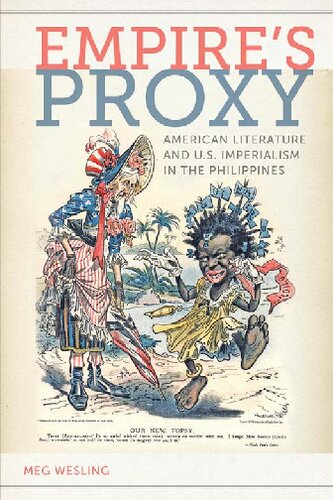

Most ebook files are in PDF format, so you can easily read them using various software such as Foxit Reader or directly on the Google Chrome browser.
Some ebook files are released by publishers in other formats such as .awz, .mobi, .epub, .fb2, etc. You may need to install specific software to read these formats on mobile/PC, such as Calibre.
Please read the tutorial at this link: https://ebookbell.com/faq
We offer FREE conversion to the popular formats you request; however, this may take some time. Therefore, right after payment, please email us, and we will try to provide the service as quickly as possible.
For some exceptional file formats or broken links (if any), please refrain from opening any disputes. Instead, email us first, and we will try to assist within a maximum of 6 hours.
EbookBell Team

0.0
0 reviewsPart of the American Literatures Initiative Series
In the late nineteenth century, American teachers descended on the Philippines, which had been newly purchased by the U.S. at the end of the Spanish-American War. Motivated by President McKinley’s project of “benevolent assimilation,” they established a school system that centered on English language and American literature to advance the superiority of the Anglo-Saxon tradition, which was held up as justification for the U.S.’s civilizing mission and offered as a promise of moral uplift and political advancement. Meanwhile, on American soil, the field of American literature was just being developed and fundamentally, though invisibly, defined by this new, extraterritorial expansion.
Drawing on a wealth of material, including historical records, governmental documents from the War Department and the Bureau of Insular Affairs, curriculum guides, memoirs of American teachers in the Philippines, and 19th century literature, Meg Wesling not only links empire with education, but also demonstrates that the rearticulation of American literary studies through the imperial occupation in the Philippines served to actually define and strengthen the field. Empire’s Proxy boldly argues that the practical and ideological work of colonial dominance figured into the emergence of the field of American literature, and that the consolidation of a canon of American literature was intertwined with the administrative and intellectual tasks of colonial management.